2015.02.19
Governor challenging Tokyo over Futenma
Preliminary work on the new airfield intended to replace the controversial Futenma Marine Corps Air Station in densely populated Ginowan City in central Okinawa is under way, but Okinawa’s new governor is vowing to block it or stop it, and Tokyo’s not taking his moves lightly.
Governor Takeshi Onaga was elected last fall, campaigning on a series of pledges to block construction of a replacement airfield facility at and adjacent to the Marines’ Camp Schwab in the Henoko district of Nago City, or crush the project outright. “I will use every means to fulfill my campaign pledge,” Onaga tells the media and practically anyone who wants to talk and listen. His campaign pledge is in direct opposition to the agreement approved by Hirokazu Nakaima, his predecessor in the governor’s chair.
Nakaima approved the landfill permits necessary to get the airfield project started in Oura Bay, adjacent to Camp Schwab. Once the land is reclaimed, a pair of 2,500-meter V-shape runways will be constructed, linking to the Marine Base. Nakaima’s decisions were shrouded in controversy, with longtime opponents to creating the new base screaming foul, insisting the new runways would cause environmental damage to both coral and marine life. Proponents praised the governor for making the tough decisions that would remove the dangerous Futenma Marine Corps Air Station from Ginowan, where citizens have long lived in fear of an accident that could decimate their city.
Onaga is currently looking for errors in the mountain of environmental documents that were filed with the prefecture, and which Nakaima approved. He hopes to find sufficient mistakes to power the project down. Many believe he’ll find errors and mistakes, while others think his moves are tantamount to a witchhunt. Some believe Onaga’s so dead set with his convictions that he’s liable to order the project shut down regardless of legality.
The governor’s latest point of contention is that the Okinawa Defense Bureau has illegally installed large concrete blocks in the construction area. Onaga says the moves “deviated” from what Okinawa Prefecture had approved, but Defense Minister Gen Nakatani insists the movements are perfectly legal, and were accomplished only after the prefecture had approved them. The Defense Bureau says Nakaima last August approved the plan to close off the reefs in waters in Oura Bay off Henoko as a part of the project. Onaga says the actual placing of the large concrete blocks are outside the approved area.
The governor is telling the central government he’s going to conduct an investigation, and if problems are found, he’ll demand the project be suspended. Yoshihide Suga, the Chief Cabinet Secretary, says work’s being done in compliance with rules established by the Okinawa Prefectural Government, as well as by discussions that followed the initial paperwork.
Opponents to the new airfield lost an avenue they’d hoped would bring pressure on the U.S. and Japanese governments when a U.S. federal judge dismissed a lawsuit filed by Henoko opponents that sought to stop the project on the grounds it would harm the environment of the dugong, a lumbering marine animal similar to the manatee found in the United States.
The San Francisco federal court judge, Edward Chen, rejected the suit on grounds he didn’t have authority. “Put simply, this court lacks the power or necessary competence to enjoin or otherwise interfere with the construction of a U.S. military facility overseas that is being built consistent with American treaty obligations and in cooperation with the Japanese government,” he ruled. Japanese environmental groups had launched the suit, charging Secretary of Defense Chuck Hagel as defendant.
Peter Galvin, a leader of the Center for Biological Diversity, one of the plaintiffs, says the federal court decision will be appealed, because “we believe it is an erroneous decision that will be overturned by a higher court.” Environmentalists have been trying to stop or block the Futenma move north for many years. The initial lawsuit was filed nearly 12 years ago, with the dugong at the heart of the claims. Opponents insist the new runways would prove the downfall of the dugong, as its feeding grounds and habitats would be damaged or destroyed. The dugong has been on the U.S. Endangered Species List for more than a decade, as the number of dugong dropped below 50.
Judge Chen, in his ruling, cited earlier court cases which had directed the Defense Department to consider the potential dangers to the dugong, and which had been approved in 2014 finding that the new base would not have a negative impact on the dugong. Plaintiffs are furious, saying the 2014 court decision was “arbitrary and capricious”. Chen denied that, noting the finding was of little consequence since “the American and Japanese governments have made a final and irreversible decision to construct the challenged military base.”
-
bob

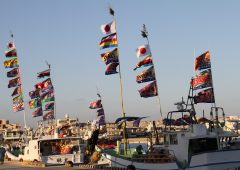 2024.02.07
2024.02.07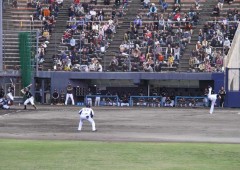 2024.01.31
2024.01.31 2023.11.02
2023.11.02 2023.10.26
2023.10.26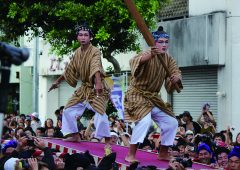 2023.09.29
2023.09.29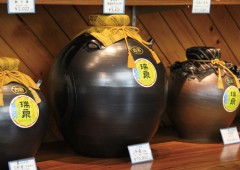 2023.09.01
2023.09.01 2023.08.22
2023.08.22 2023.08.15
2023.08.15 2023.07.27
2023.07.27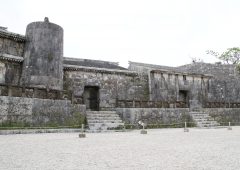 2023.07.05
2023.07.05






